Hey it’s alivia send me your spinning up account
https://www.universalmusic.com/label/spinnup/
Spinning up is a platform for independent artists run by Universal Music Group (UMG). I dont work with them I am just familiar with the platform and pay attention to new artists. If you are an artist or know any artists create an account. UMG is one of the major record labels and I know that new or aspiring artists have a lot of questions about how to get started and where to share their music or how to create a music page. I have tried to do my best to aggregate a few resources here because in the beginning for me everything was so confusing and it has taken me year to figure things out.
I spent some time as an entrepreneur in residence with Capital Music Group and Universal Music Group and was able to talk to people working in A&R to understand a bit more about the business side of music.

A former entertainment lawyer and a social commentary youtuber got together and broke down some really important information about the music business, you might want to check that out.
Pharrel also gave a great talk a few years ago about the music industry and ownership, this seems useful for new artists to know.
Pro Tips For New Artists
- Write your own music (notepad)
- Snatch free beat from YouTube (google free beat, insert genre)
- Record your vocal audio and beat in garage band with some sort of mic situation
- Submit your music to United Masters
- Contact customer support to ensure you have ownership rights to your page on apple music and spotify music
- Submit your art to Tiny Desk Competitions and Festivals
- Find local artists in your area and look at their webpages to see where they have performed, contact those venues
- Wash Rinse + Repeat
You are probably wondering who is this girl?
https://amblount.github.io/
I am more interested in data journalism and sentiment analysis now, so I am writing about how music makes you feel.
I started gaining skills in technology due to the high cost of living
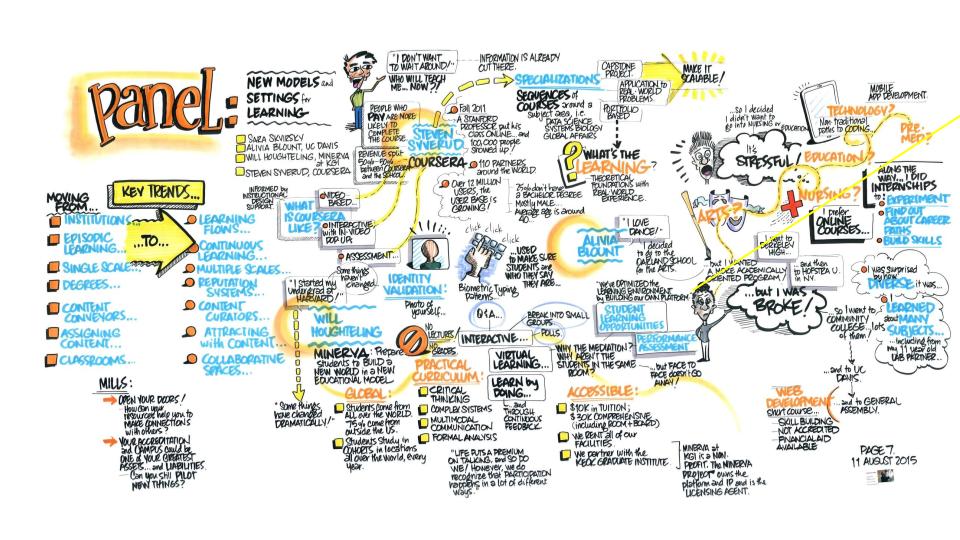
- I completed a web development bootcamp
- I completed another software engineering bootcamp
- I did a few internships
- I did a few corporate jobs
- I was burnt out and started writing about food and leisure
- I started making videos about adulting and living on my own
https://www.linkedin.com/pulse/adda-twist-scienist-rosie-revere-engineer-alivia-blount
Having skills in technology is just useful becauwe you can work and create. I learned early on that there was too much I didn’t understand about art as an industry and I would need to keeo a job during the time that I was trying to build a creative empire. You can do this do with Google Online Certificates. They offer financial aid options and you are able to learn skills like project management and data analytics all from the comfort of your own home after work. With about a year of investment in time you could learn a new skill that should be able to pay for your cost of living in any major city so that you can spend your off time working on creative projects that bring you joy.
I am for sure just an arts school girl at heart
- Elementary School: Berkeley Arts Magnet (Dance)
- Middle School: Longfellow Arts and Technology (Dance)
- Primary School 1: Oakland School For the Arts (Dance - transfer)
- Primary School 2: Berkeley High School Graduate (Diploma)
- Community College: Berkeley City College - Associates Degree (General Ed)
- Uni: University of California, Davis - Bs (Computer Science. incomplete)
I could spend more time and go back to school, but I really enjoy living on my own in my own apartment. I pay marketplace rent and that requires a job.
I like to mention my primary and secondary school experiences because I spent so many of my years in arts school. It was a bit more than a hobby for me. At the time there weren’t many people who were able to turn a passion for hip-hop dance into an actual career that would sustain a meaningful quality of life. This is why I made the choice to study something technical in case I needed to get a real job. I do enjoy writing about my prior experiences in dance and in technology and telling those stories online.
Short excerpt from a digital scrapbook
It’s something that I like to do when I am bored because I can think back to special moments in my life. Growing up I had a lot of extra-curricular activities, and I was able to meet so many cool people and travel around the bay area. The Bay Area is a really diverse place to live and so meeting new people from other neighborhoods and cities means that you will probably come across another culture from another part of the world. This scrapbook is a collection of some of my favorite moments and details how I got into certain activities and what those activites meant to me. Unfortunately growing up although I participated in performance arts I don’t have many videos of the event, but I can still tell the story of what happened.
This is a digital scrapbook that I am creating for you to get a sense of the ways that utilized my times outside of academics throughout primary and secondary school. I met a LOT of great friends and was able to travel all around the country. When I was in high school all of the students were clustered by social groups and where you hung out on campus determined what your typical social interests were. I was very interested in music and fashion so I hung out at the bricks for about 15 minutes each day after my final period before I attended my first after school program or the library. I transferred from Oakland School for the Arts, where I studies dance to Berkeley high and I was behind academically. I had to spend a lot of time in the library after school to get tutoring for my schoolwork and use the computers to do my homework. When I think back I was on the right track, but I lacked appropriate study skills so I was unable to think through how the concepts that I was studying applied to my real life and how to apply that information to my classroom experience. One really great take away from my senior year, which was the year I took this picture, I had a really great physical exercise routine. I had one physical injury in arts school where I hurt my knee and I was afraid that if I injured my knee any further I wouldn’t be able to dance any more EVER. Instead of continuing ballet training, I enrolled in hot yoga or Bikram. It’s a really great style of yoga that stretches muscles you don’t normally use and makes you sweat.
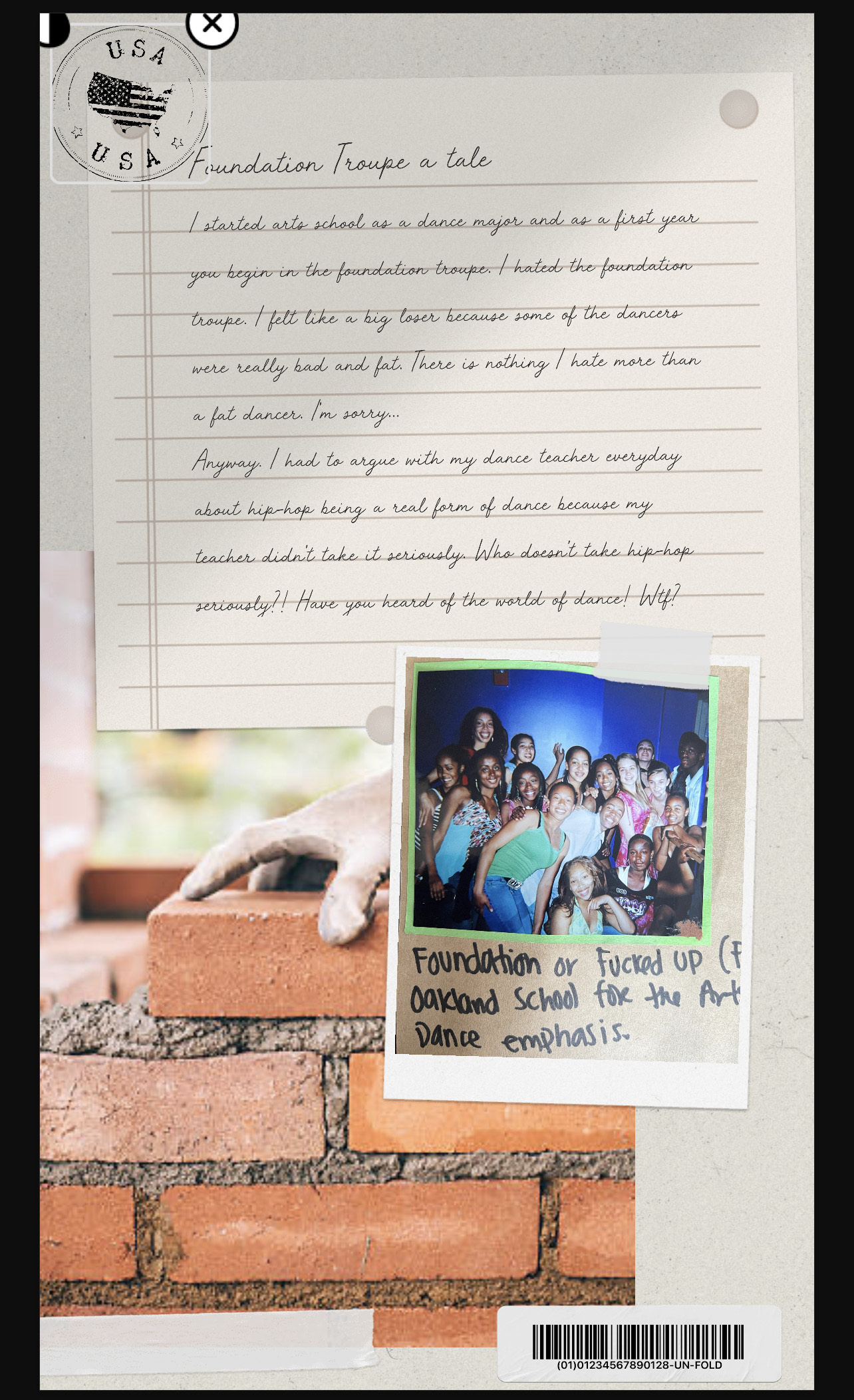
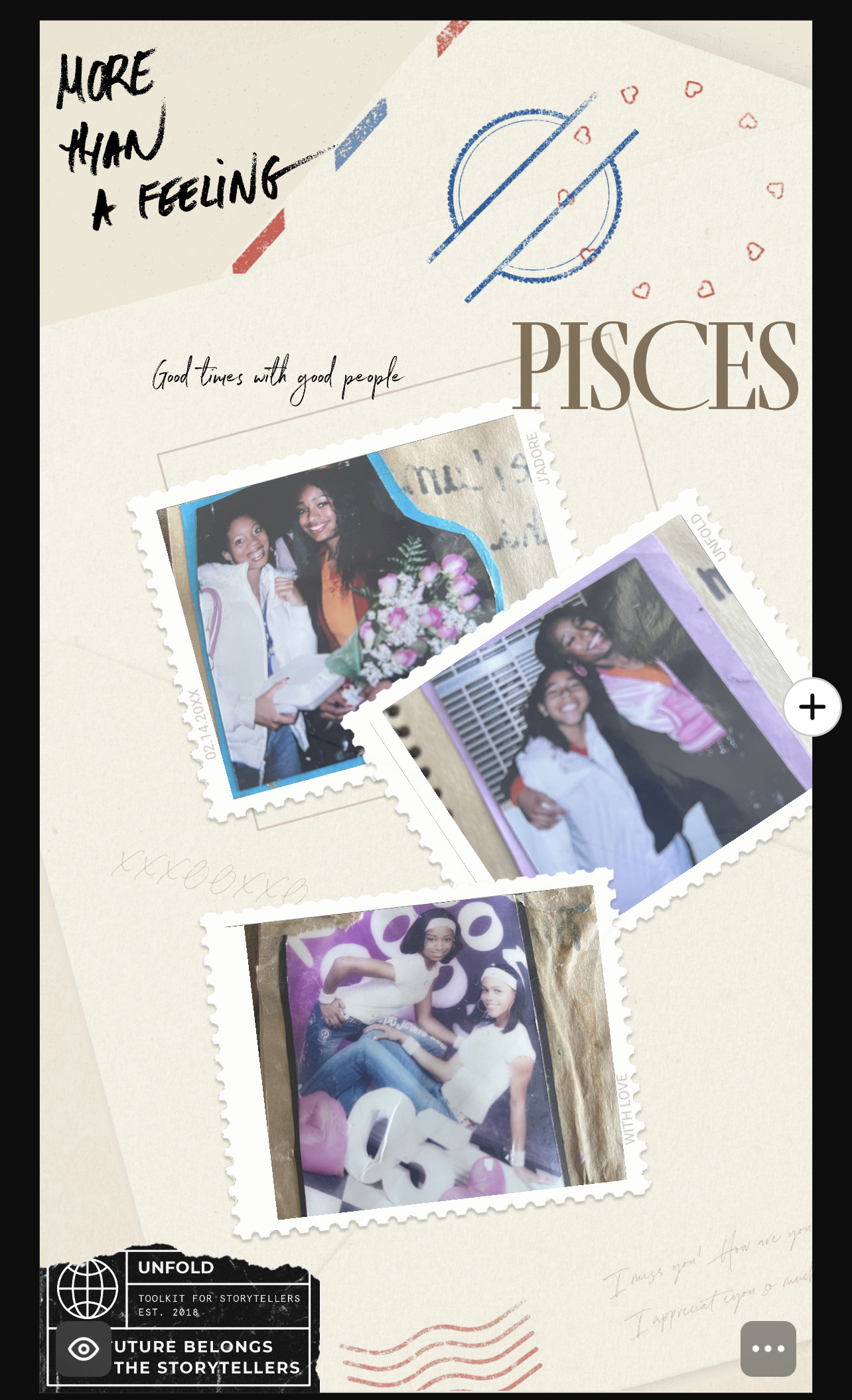
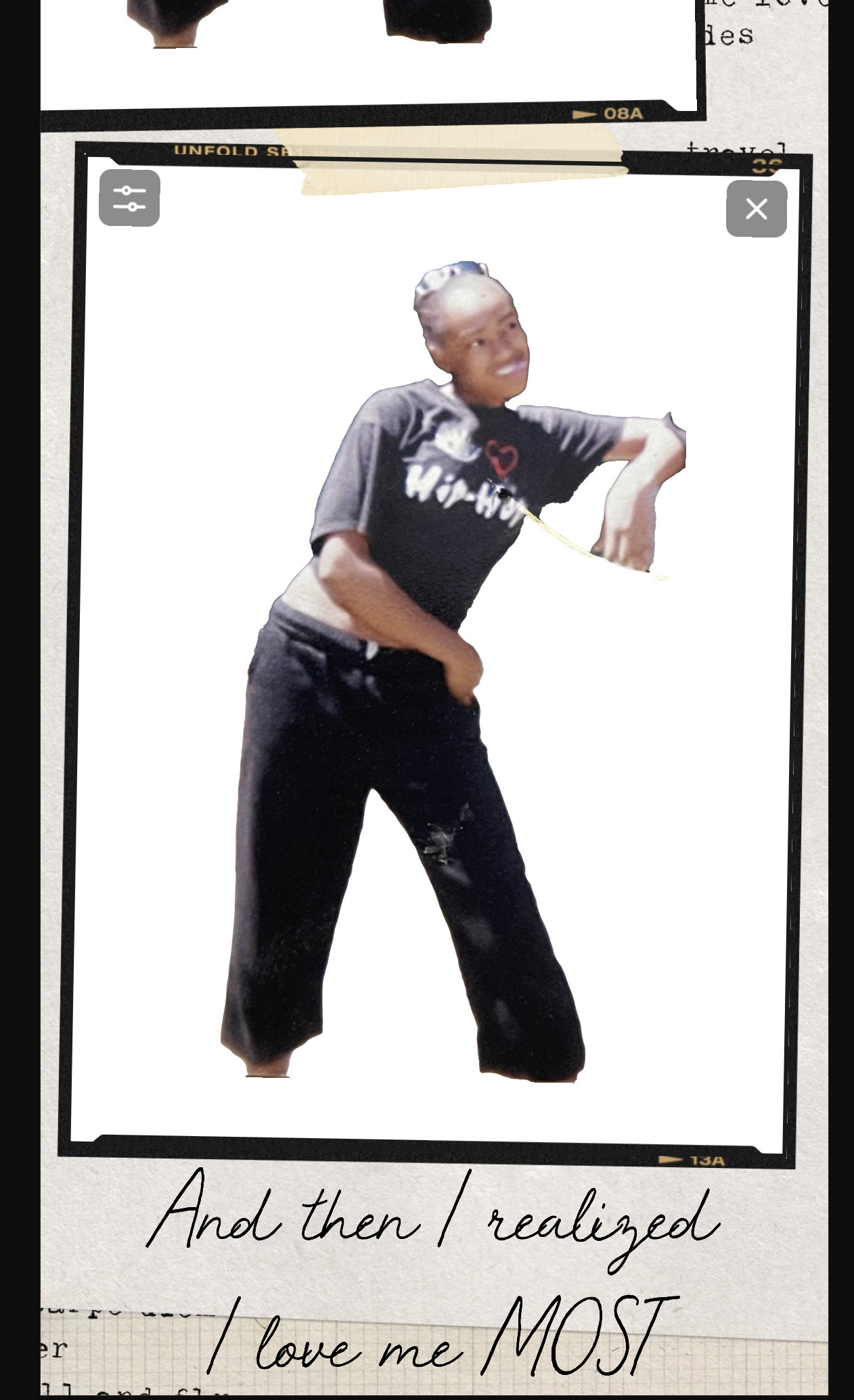
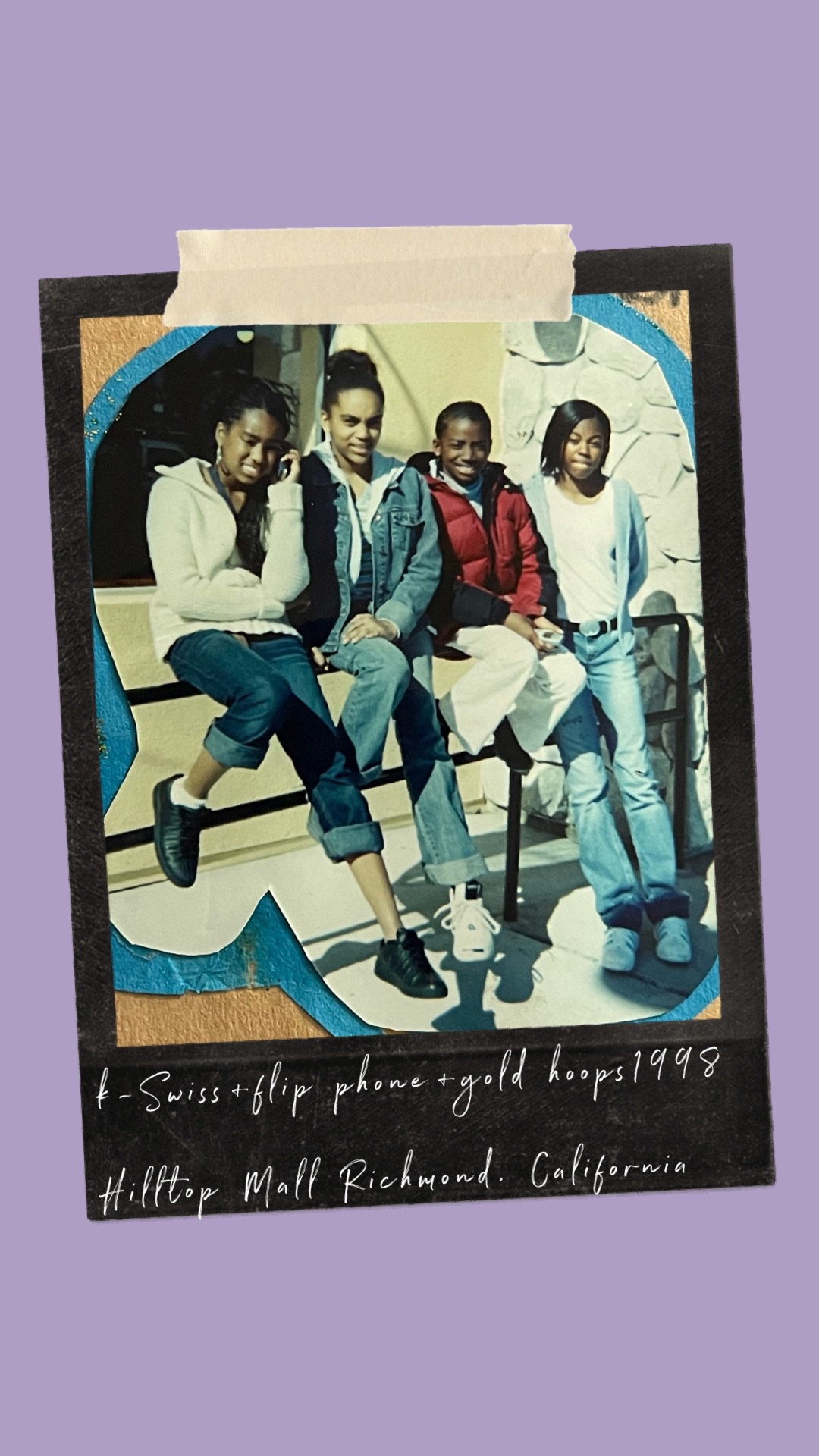
.jpeg)
.jpeg)
.jpeg)
I won a few hackathons and was able to work with Universal Music Group 3x

What did I learn?
- What is the music business at heart and how do artists make money?
- How do you create meaningful engagement online with fans?
- How do you create a useful music recommendation engine and where do you get the metadata?
- What metadata is collected about each song and how can developers query this data?
- Where do streaming platforms get information about the music, who owns this data?
- How do artists get access to data collected on music streaming platforms like Spotify and Youtube?
I share some of that insight in this video blog I did after one of the meetings I had this summer.
What does the music industry mean to me?
I grew up around musicians and it was difficult for me to understand how artists make money given so many artists end up broke. I knew that certain people were making money in the business but honestly I didn’t understand how much of the business of music works. I did a lot of independent research speaking with different teams inside of Universal Music Group to understand royalties, and masters and try to get a feel of who owns music specifically in a streaming era.
My Family
Some members on my mom’s side of the my family are the descendants of American Chattel Slavery (D.A.C.S.) and many of them lived off of the wealth created by my uncles music career. It retrospect this should not have been such an integral part of my story growing up but so few people in my family had access to higher education or quality publid education through secondary schooling that their life chances were non-existent outside of fields in entertainment. My uncle (Little Walter) was a problematic, outspoken drunk whose overconsumption eventually lead to his death as depicted in the film, Cadillac Records. As momumental as it was for me to see the story of a beloved family member on screen, it just reminded me of the purpose and significance of ownership in music for artists. Althought listening to good musis is a wonderful experience for so many consumers, people fail to realize that many artists feed and raise their families with the money they ear in this career. Personally for me the second home that I grew up in was paid for money that my uncle earned playing the harmonica. The story is an integral part of my life.
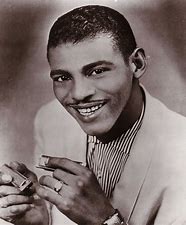
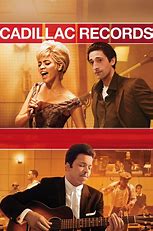
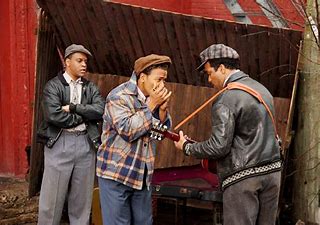
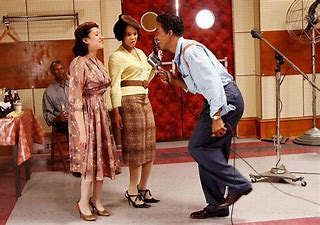
The Blues Museum, St. Louis (2018)
On a previous team, I traveled to St. Louis to support developers working in one of the North American tech hubs and while walking around the community I passed the national museum of blues and purchased a ticket to enter. I was suprised to find so many artifacts containing imargery and documents of my uncle, and it was an incredible experience for me. When I told my grandmother about it, she cried for a few weeks becuase she had so many memories about her brother and what he meant to her as a person but I think more importantly socially and for the trajectory of her life and her family. For her it wasn’t jusy music it was a home or place of refuge after my family had to run away from gang violence in Chicago. Little Walter’s songs in her case were like biblical chants of freedom and prosperity and obserd as that may sound.
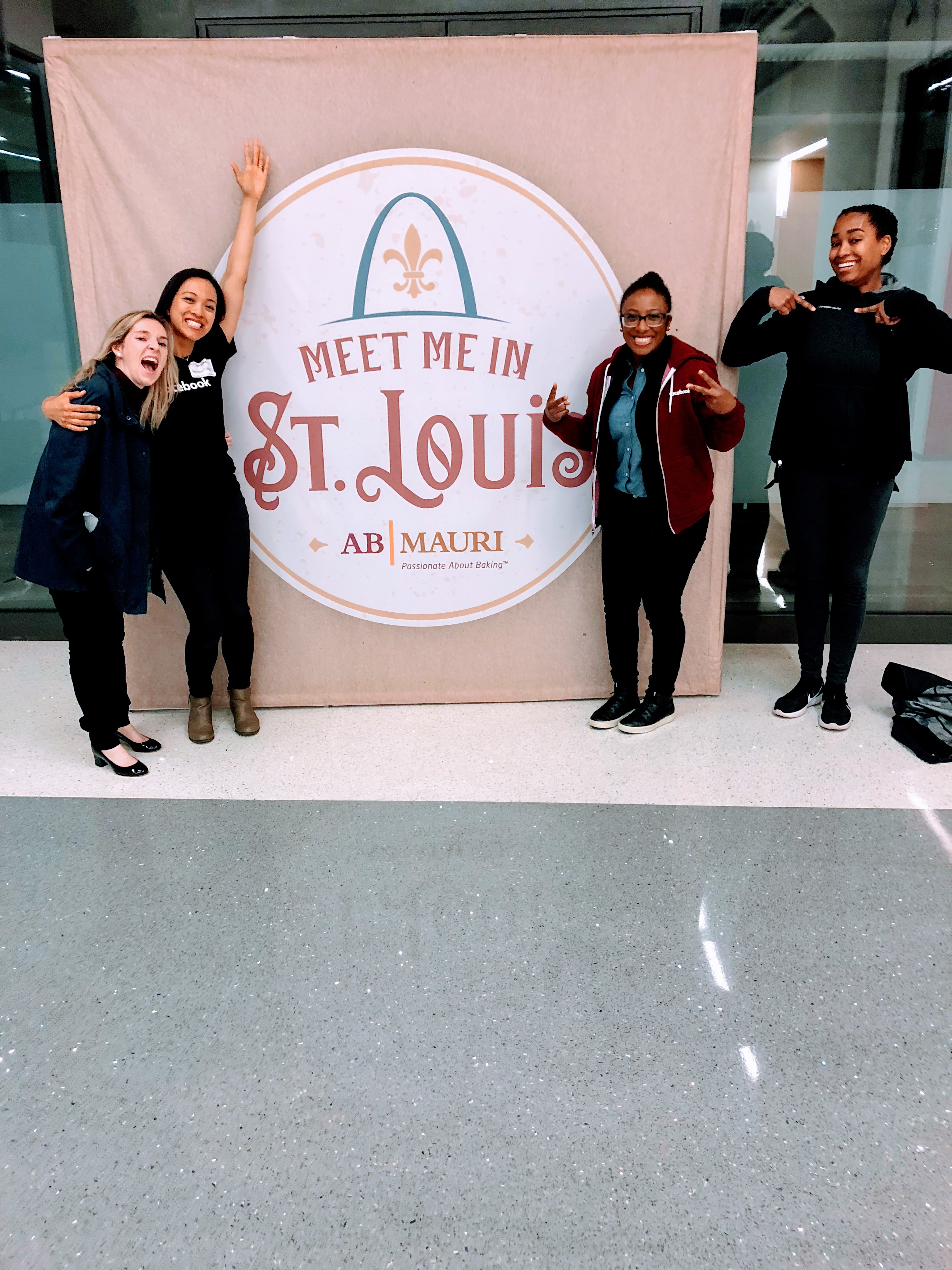
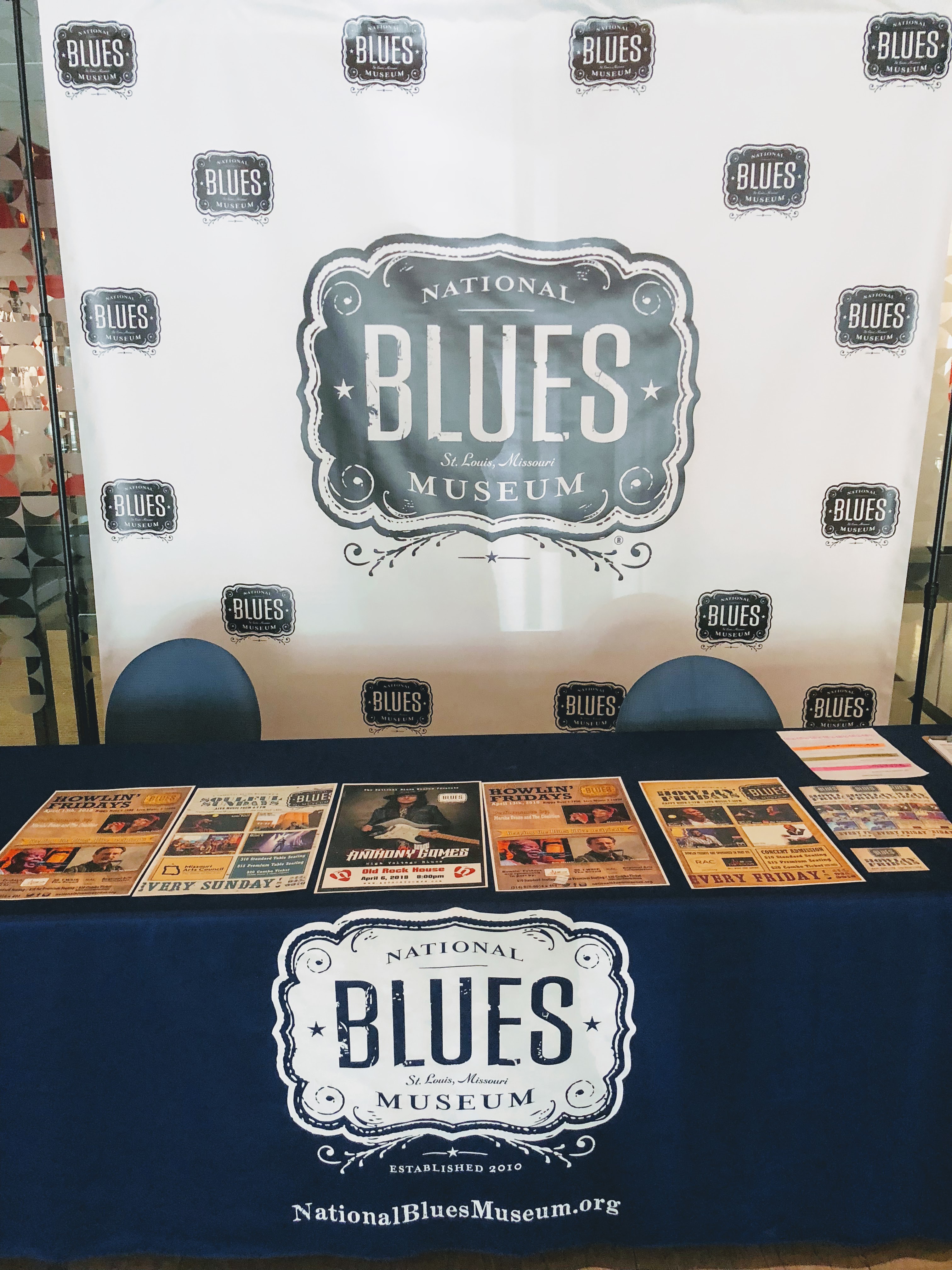
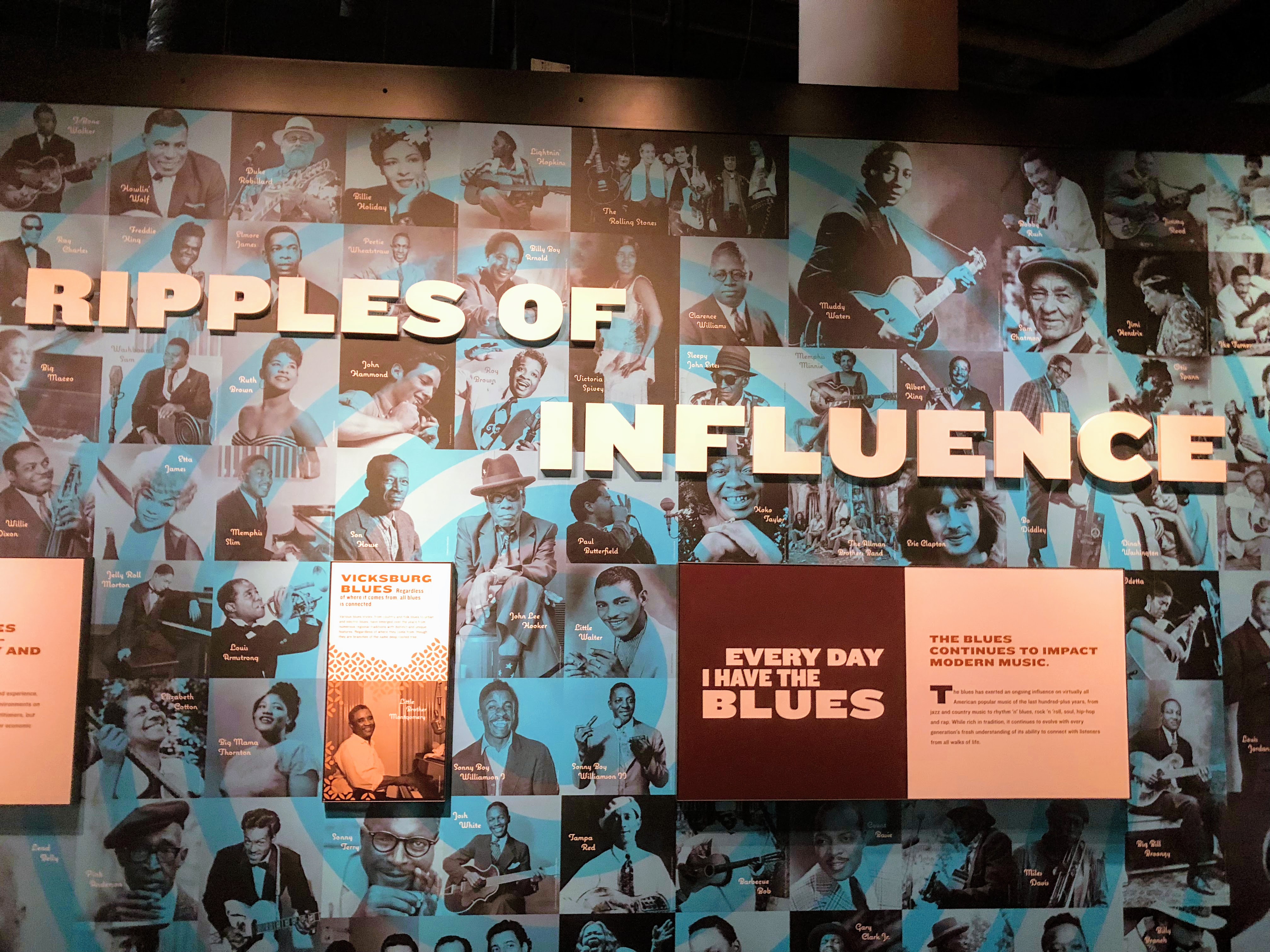
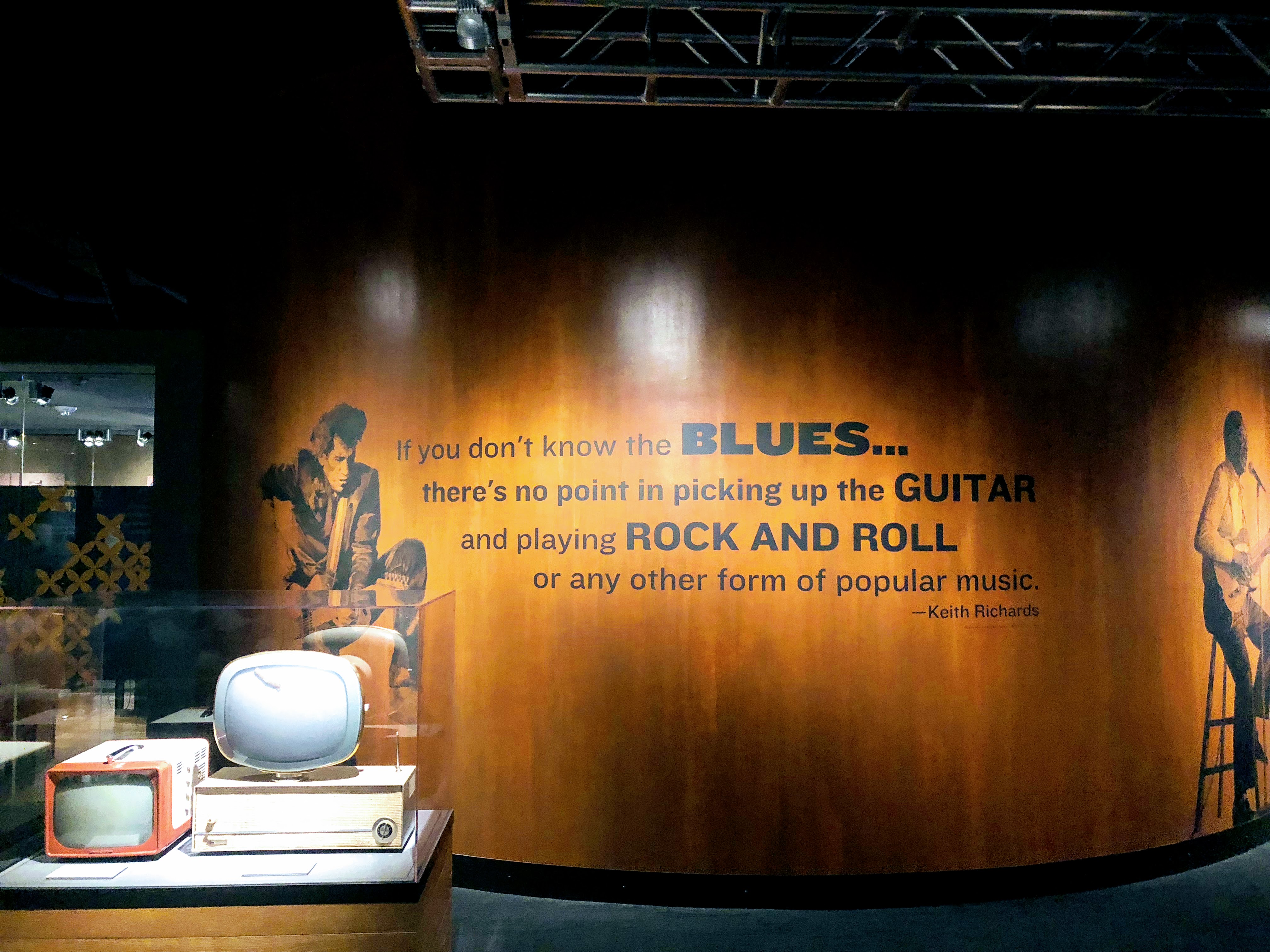
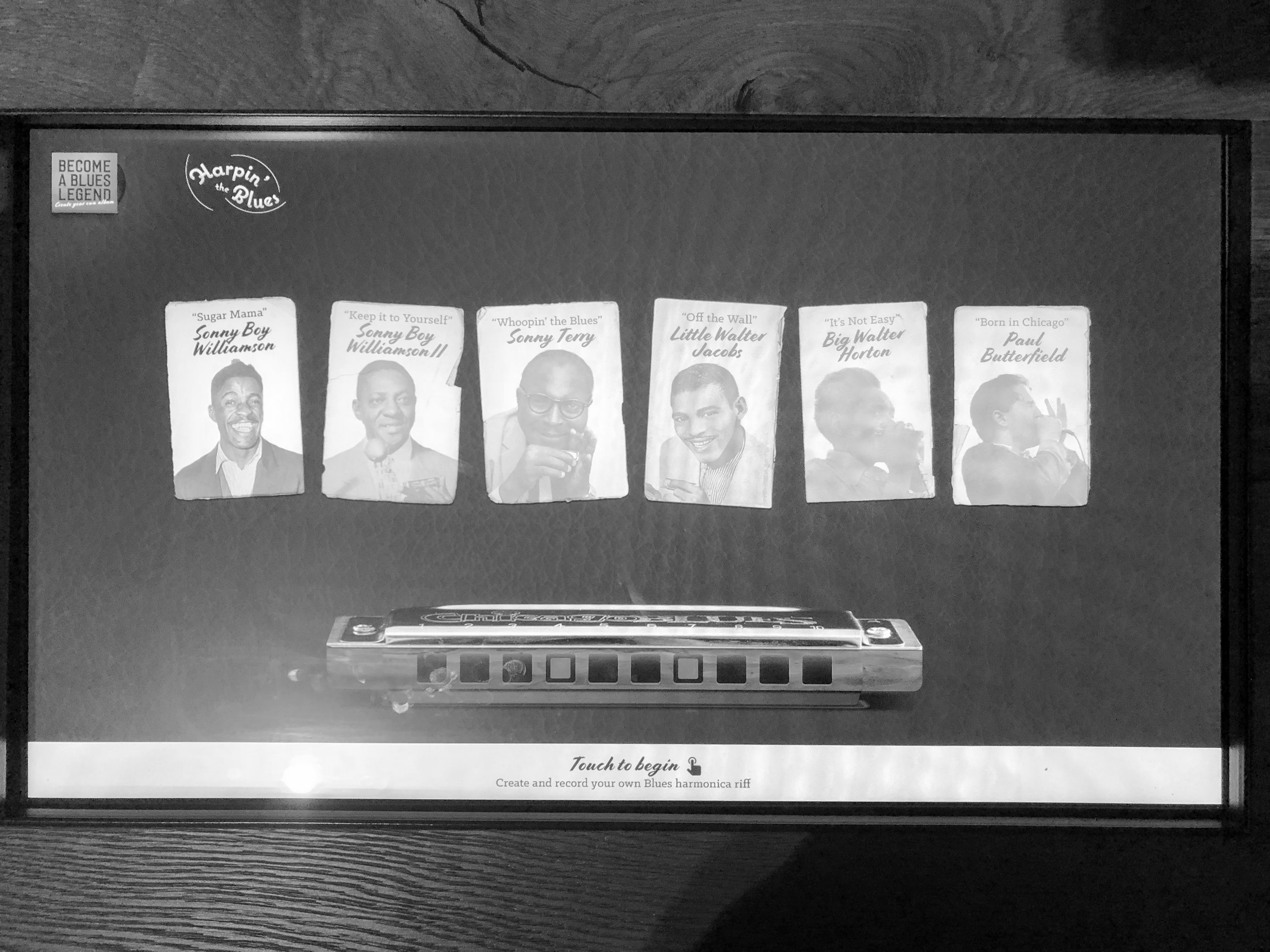
Alivia works on music and data
As I gained more skills in technoogy and software engineering I found a passion data and metadata. I spent a lot of time thinking about how metadata could be used to help music consumers find better recommendations. I had to learn a little about analytics and parsing large and small data sets and in my spare time I worked in the first version of sentify the sentiment analysis music project. I also interviews with large financial technoogy companies in the data science department, so even interviewing with these companies I learned more about how big data and machine learning were being used to make recommendations. I guess music recommendations are my area of interest.
ALIVIA LOVES MUSIC RECOMMENDATION ENGINES
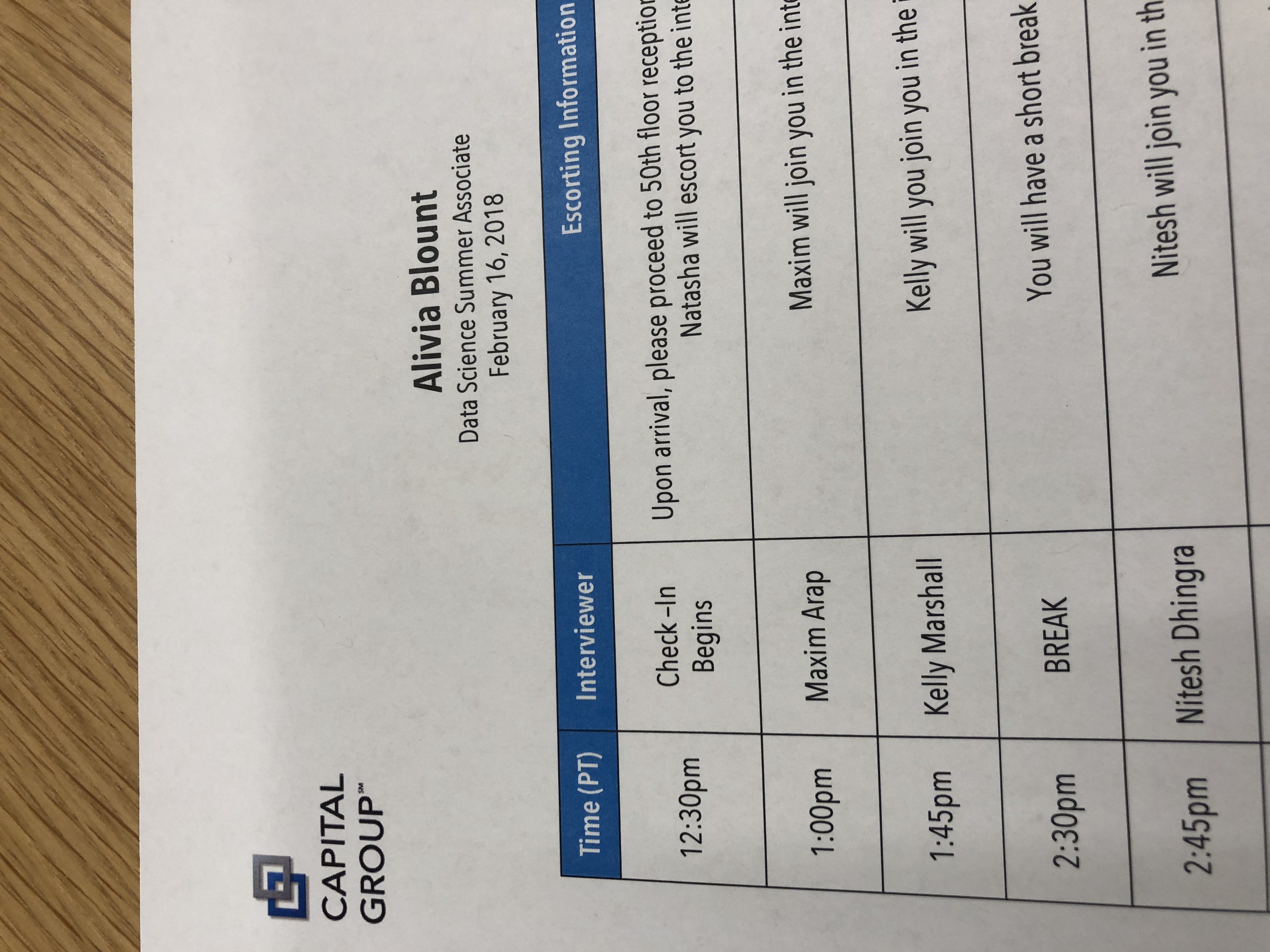
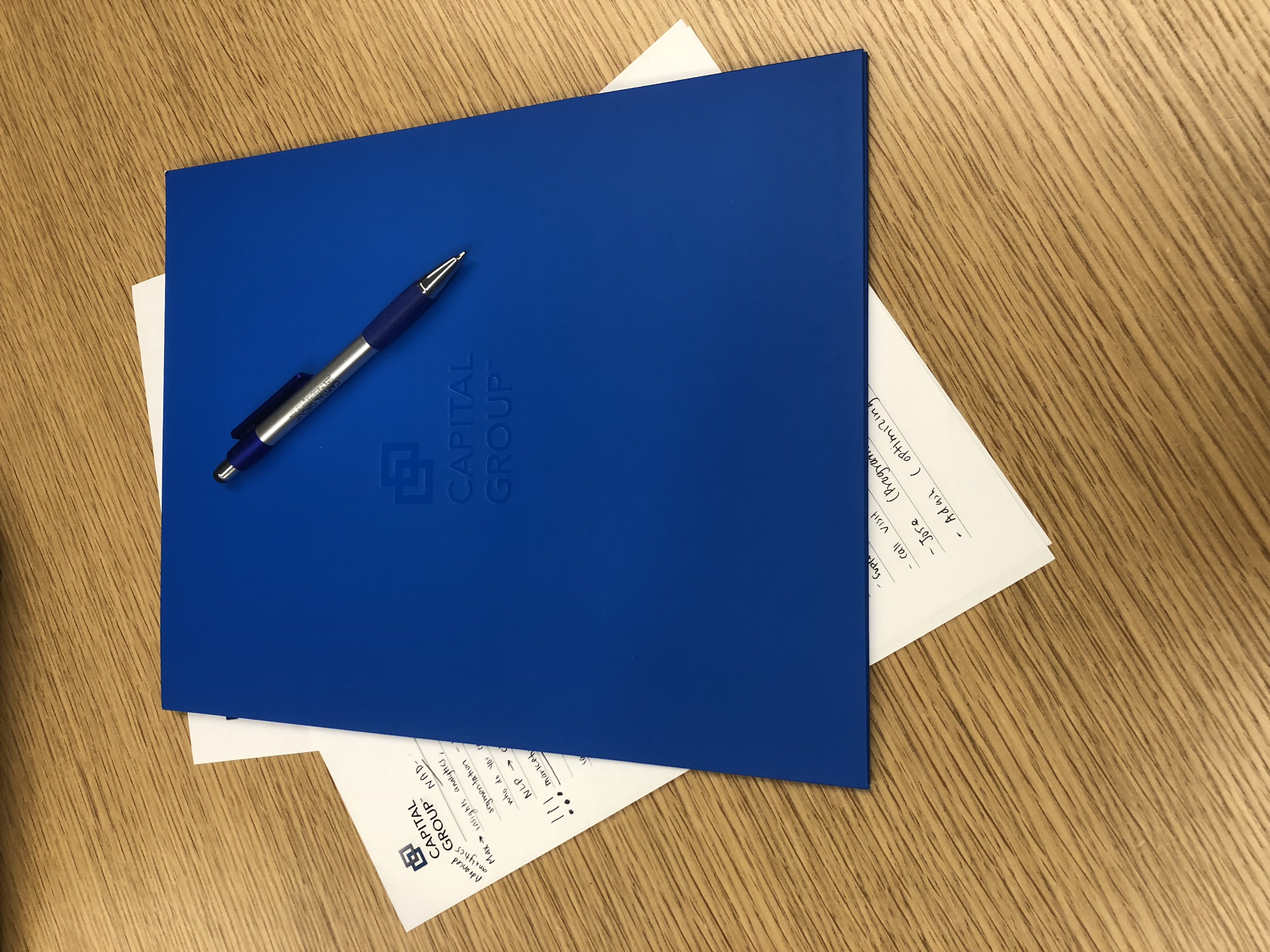
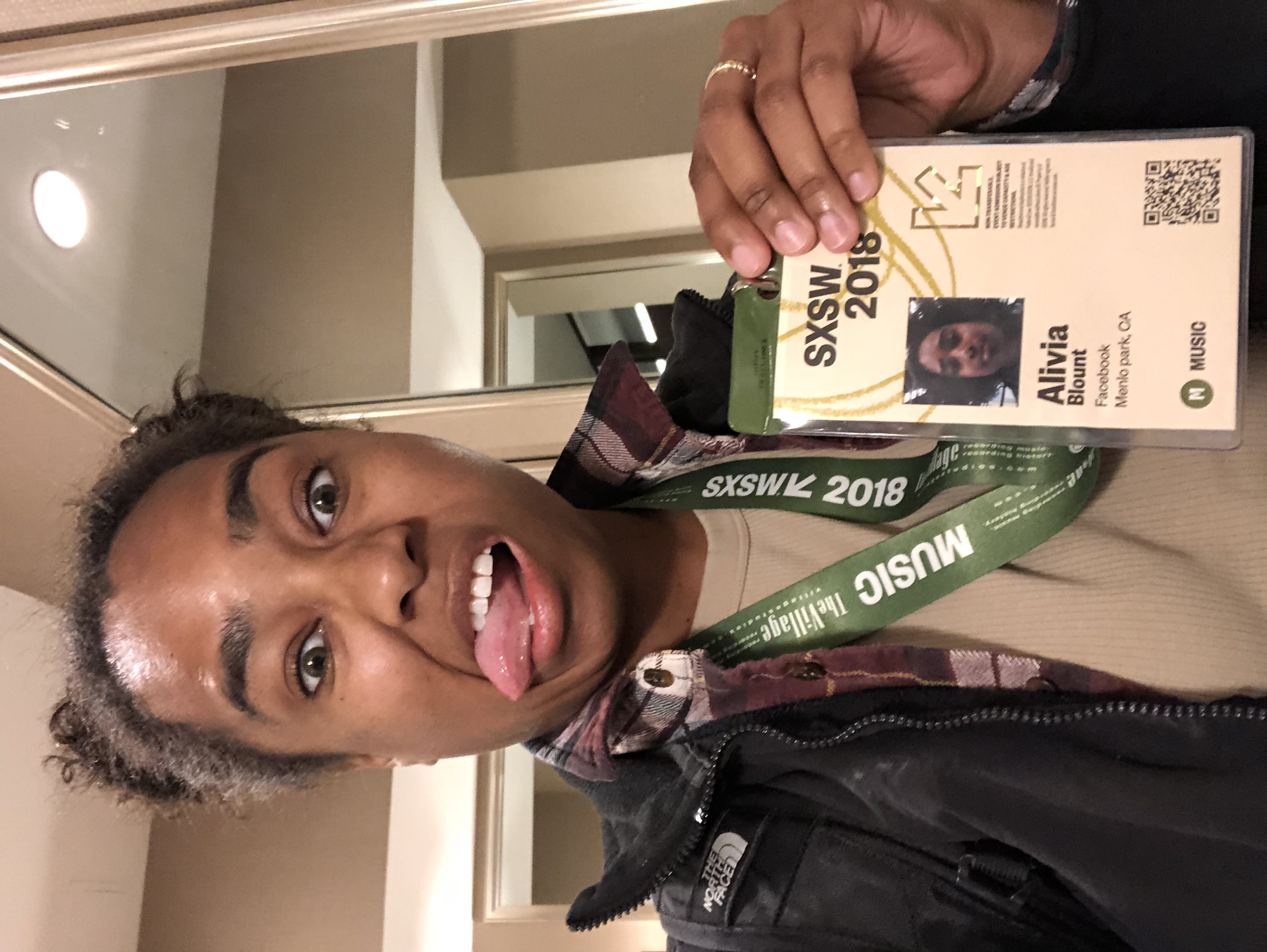
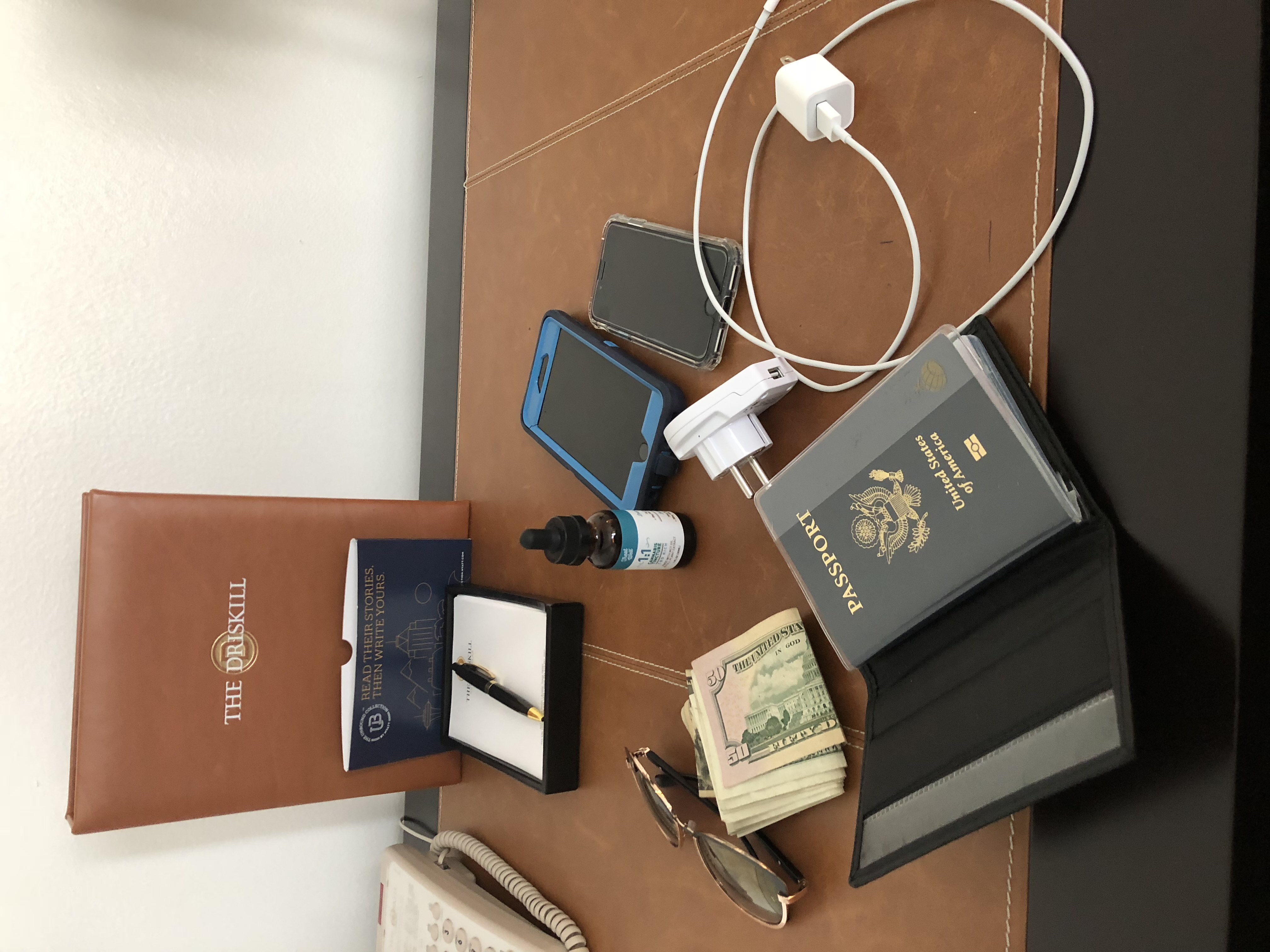
- Travel to Los Angeles for All Star weekend (2017) to interview with Capital Group (American Hedge Fund- Financial Technology)
- I went to Austin, Texas for SXSW - Music to host a Hackathon when I was working with Facebook
- Traveled from Tunis, Tunisia (Africa) to Austin, learned a LOT about corporate travel around the world and business class, delta air miles are legit
My team sponsored a music hackathon and while bored I participated and won
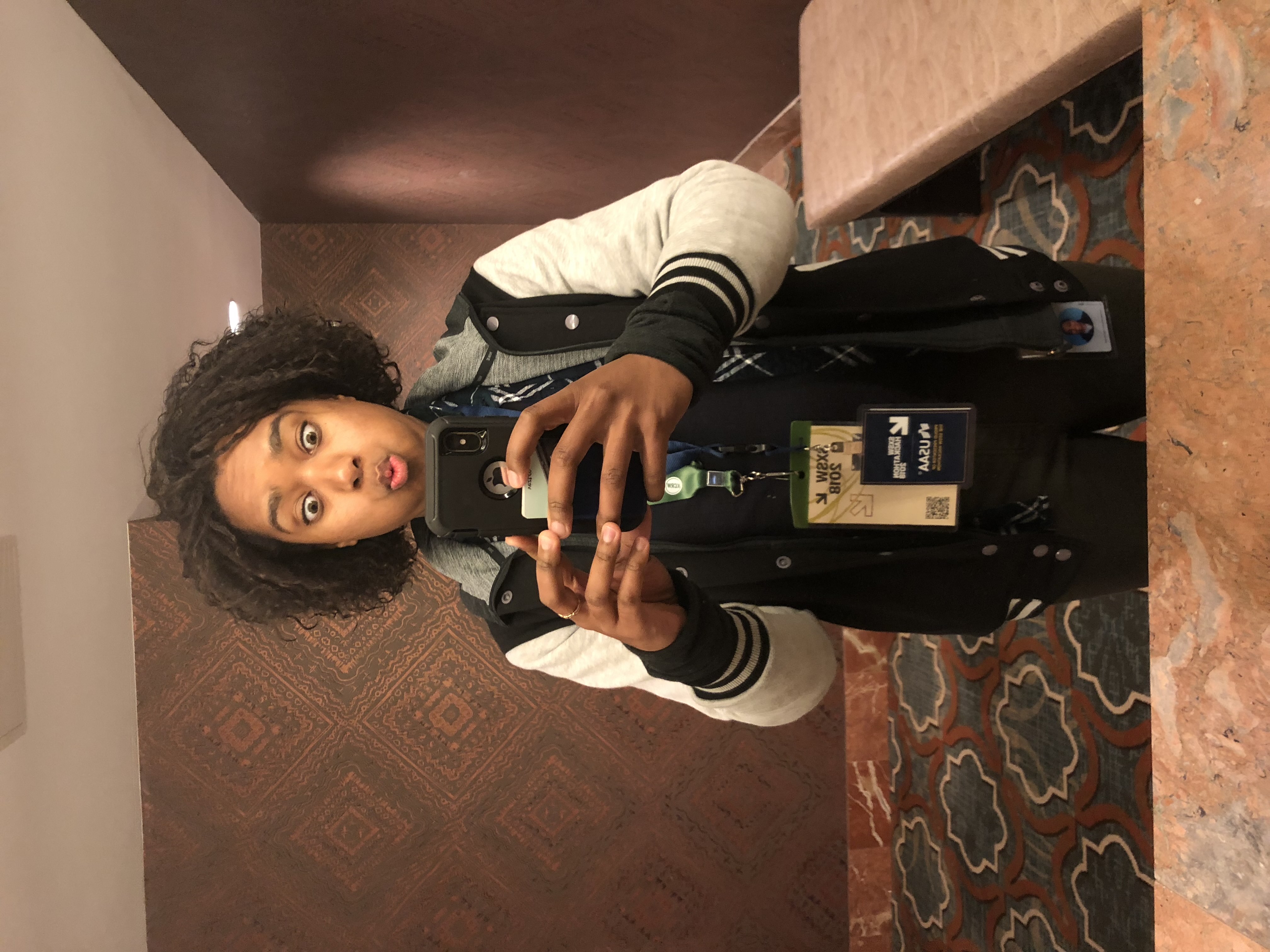
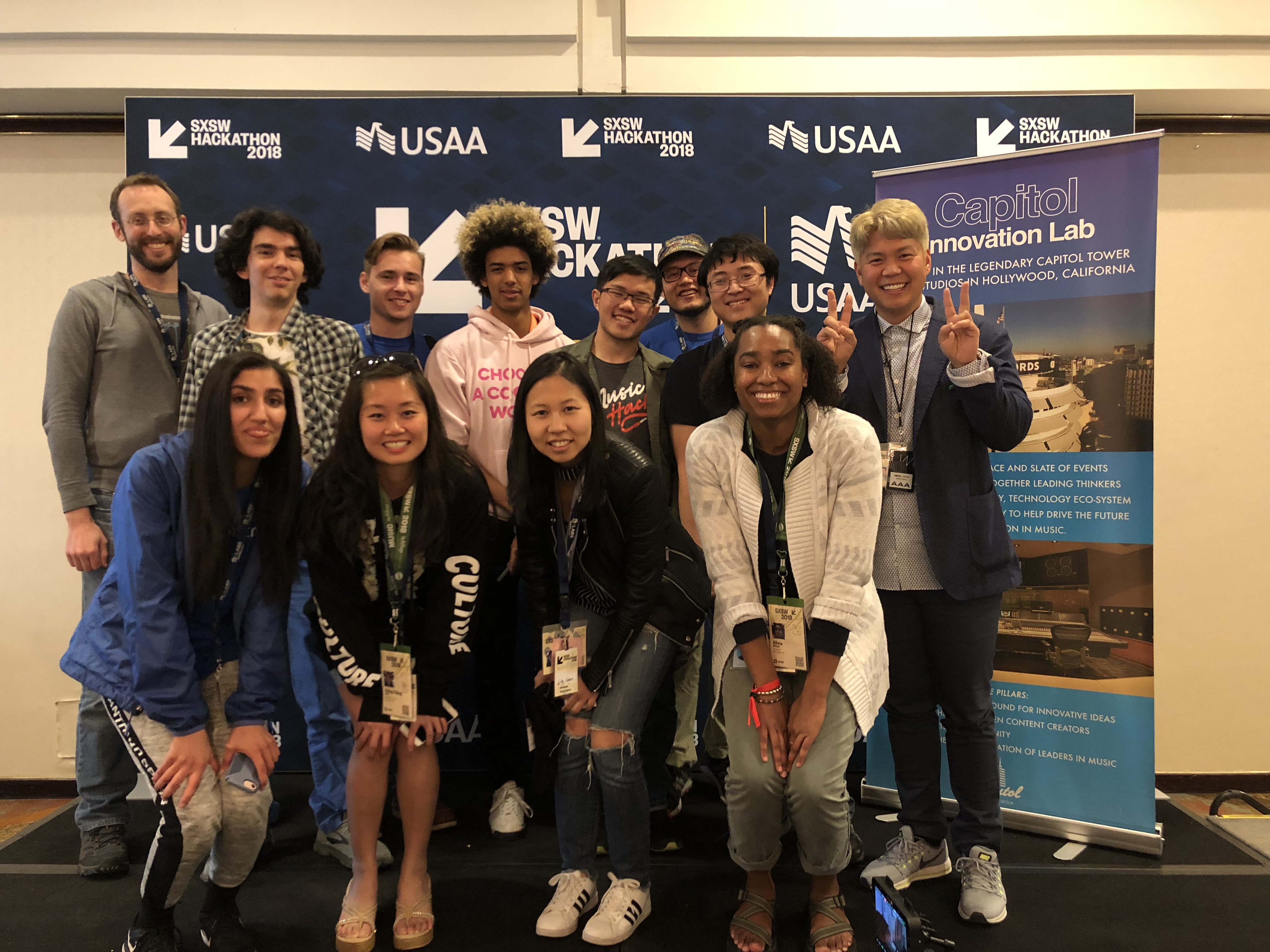
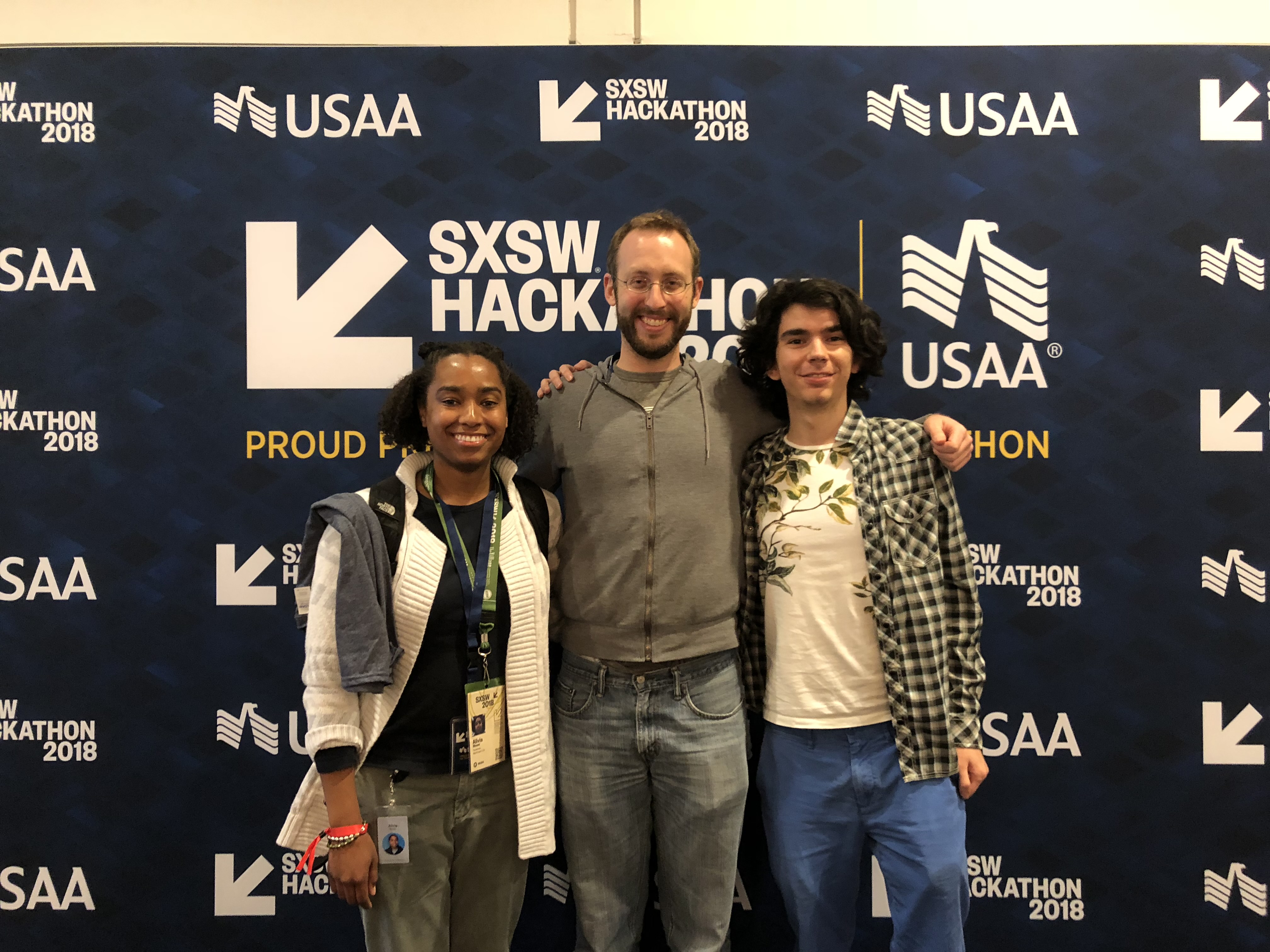
- You can read about the project in the Dev Post Lnks above
- ROVI (TIVO) has a metadata music API where you can query metadata about a song and use this information to build other music related apps
How can YOU can involved
If you are interested in building products with music I would encourage to narrow in on your focus. There are free product design courses and you can work your way through one of them. Google offers a free course on product design which they host on the Udacity learning platform. I would encourage you to take it. Once you have an idea on what you want to build and how it could work, you can try talking to some of your friends about the product and see if the idea makes sense. Once you get to a place where 5 people you know understand how your product should work, you can try to serach around for data and see if you can create a databse filled with information about your topic.
Look into Abbey Road and their innovation challenge. They have a lot of music products from that people have built in the past. Abbey Road is one of the most notorious music studios in the world, so they definitely know music.
Take a look at the last project that I worked on with the Universal Music Groups Innovation Challenge. Duets
Duets is The first social AR app to capture human movement and music
I rented a loft space while in LA
I took some time away from work to actually travel with my team to Los, Angeles and visit different departments inside of Capital Music and learn more about the music business. I stayed in the most lovely AirBnB in Los Angeles owned buy musicians. In this video you can see what that what like for me.
I toured the classic building
Walking through this recording studio and watching musicians record in real time felt so surreal. I never thought in a million years that I would have the opportunity to walk in a building that some of the geatest musicians of all time have worked in. It felt nostalgic and other worldly. I am so prooud that I was able to have this experience because I was able to talk to my family members about it and they also realized the impact and significance of the trip.
I met Frank Oceans Producer
We are talking about THE Frank Ocean. Chanel Orange changed my life in ways that hard to put words to and to get to chat with someone who worked with him made me feel really special. Like a superhero.
I explored the sound board
The equipment here is obviously the highest grade available in the world.
I love live music
I currently live in Downtown, Berkeley (California) and there is live music every weekend. You can just go outside between 8:00 PM - 10:00 PM and listen to some local band play their songs or other bands who perform covers. It’s incredible and cheap fun.
I do covers
This year I started writing and performing. It’s the beginning so its kinda bad.
Read This book
This book is one resource that all of the music execs in all of the buildings I have visited had on their desks. The author worked in the music business for many years and updates the contents of the book each year.
Now in its tenth edition and its biggest revise ever, Donald Passman’s classic guide returns with the most changes in the book’s and music’s history, due to how streaming has turned the industry upside down. This is a must read to navigate those changes and thrive in the rapidly changing music industry.
Nobody knows the music business like Don Passman. The first edition of ALL YOU NEED TO KNOW ABOUT THE MUSIC BUSINESS was released in 1991, quickly being dubbed the “industry bible” by the Los Angeles Times. Over the next 28 years and many editions, Donald Passman’s roadmap on how to succeed in music has only become sharper and more insightful. Now, in its tenth and most comprehensive update yet, Passman guides readers once more through the constantly shifting landscape of the music industry—through all the digital and streaming jungles and mystifying legalese and royalties—to teach music-loving hopefuls everything they could possibly need to know to not only survive, but to strike it big.
But this book isn’t only for those just starting out. Whether you’re a novice taking your first look into the music world or you’ve been in the business for a while but are mystified by the massive upheaval around you, you will find that the newest update to Passman’s guide offers the same gold-standard of timely, trustworthy guidance from a universally respected veteran of the industry. He teaches new talent how to choose a winning team of advisors; how to structure their commissions and fees; and how to navigate the ins and outs of record deals. Higher-ups can find authoritative advice on maximizing profits through concerts, touring, and merchandising deals. But most importantly, while this tenth revamp of Passman’s indispensable guidebook retains the sage lessons from past editions, it also indicates how professionals can navigate the biggest shift the industry has faced since the phonograph: teaching us all how to play the game even after the streaming revolution completely changed the rules.
The music industry has gone through a period of unprecedented upheaval in the last twenty years. The advent of streaming threw the musical ecosystem completely on its head. Suddenly, musicians don’t earn money through the number of units they sell, but rather by how many times their audiences listen to their songs. Now that this major transformation has occurred, changing everything we thought we knew about how the industry operates, the only question left to ask yourself is: how do I make streaming work for me? The tenth edition of ALL YOU NEED TO KNOW ABOUT THE MUSIC BUSINESS definitively answers this question—and so many more.
